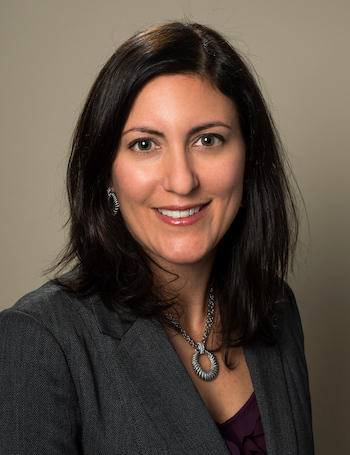During the coronavirus pandemic, U.S. children and teens are increasingly struggling with mental health issues as they become more disconnected from their peers and school routines, said Nicole Beadles, an assistant professor in George Mason University’s College of Education and Human Development and academic program coordinator for the school psychology program.
“When as a teen or a child, you are cut off from school, which is your infrastructure and routine, you can lose perspective,” said Beadles. “You are cut off from your world and left in an often tiny, isolated room. You can retreat more and more into your own head, and your thoughts can spiral and go to a dark place.”
Before Beadles taught at Mason, she had years of experience working as a school psychologist, in local districts, including Fairfax County Public Schools and Montgomery County Public Schools. She emphasizes the important role that school psychologists, counselors and other services play in ensuring the mental health of children. Beadles says that school psychologists and counselors also often refer students to community assistance programs.
Beadles noted that for some students, virtual learning and escaping busy school routines and their peer group can be a much-needed break. Those students, she said, are experiencing a relief by “hitting a pause button.” But for other students, the isolation can be extremely difficult, especially if their family life is challenging.
“If you are a student from a family where there is financial strain, mental health issues, abuse or drug use, for example, when your world shrinks because of the pandemic, what are you shrinking to? What’s left in front of you?” Beadles said. “We need to focus on getting even more help for these students.”
Students suffering through isolation from their peers may be tempted to break the rules and find ways to congregate. Beadles said that parents may be finding it difficult to enforce social distancing and other public health rules with their children, especially their teens.
“Teens don’t like to follow rules, and they don’t always make good decisions,” Beadles said. “They also don’t have years and years of experience to be able to predict or understand the consequences of their actions. While at the beginning of the pandemic they may have been following the rules, they may now be pushing against them.”
Beadles said that while challenging rules is a normal part of development, it can obviously be dangerous, especially in a pandemic.
“It’s important that parents provide guidance, helping with the emotional challenges of isolation but also placing limits and providing motivation for wearing masks and staying socially distant,” Beadles said. “None of this is easy, and it’s OK as a parent to just do the best you can do.”
To reach Nicole Beadles directly, contact her at nbeadles@gmu.edu
For more information, contact Anna Stolley Persky at apersky@gmu.edu
About George Mason
George Mason University is Virginia’s largest public research university. Located near Washington, D.C., Mason enrolls more than 38,000 students from 130 countries and all 50 states. Mason has grown rapidly over the past half-century and is recognized for its innovation and entrepreneurship, remarkable diversity and commitment to accessibility.

